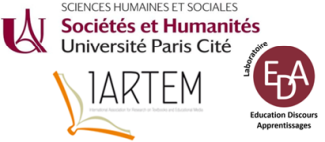Climate crisis is an urgent issue that requires immediate and significant international action and is tightly connected to several other global problems such as biodiversity loss, economic inequality, and countercurrents to democracy. Therefore, acquiring an active and agentive role in relation to the crisis is crucial on both local and global levels, as well as individual and collective. Simultaneously, according to the national core curriculum, Finnish social studies teaching should aim for active democratic citizenship.
The article analyses the construction of agency in relation to climate issues in social studies textbooks from a discursive perspective, examining the rhetoric of positioning and addressing the reader as an active agent (see Satokangas & Mikander, 2023). The data consist of four textbooks for elementary school (grades 4–6) and four for secondary school (grade 9), all in Finnish except for one for 9th grade in Swedish. We approach the data through the following research questions:
How is the climate crisis portrayed and framed for the reader?
What kind of action is represented as possible for the reader regarding climate crisis?
Working within the broad framework of critical discourse studies (e.g., Wodak & Meyer 2016), the article addresses agency – the “socioculturally mediated capacity to act” (Ahearn 2010) – by utilizing the methodological approach of textual interaction (Hoey 2001; Thompson 2012). The study of textual interaction focuses on how a reader's position, with their abilities, possibilities, alternatives, and restrictions to action, are constructed by linguistic choices. The article draws an overall image of agency regarding the climate in textbooks and examines its implications. The observations show, first, that climate is a relatively invisible theme under most societal topics, also in the chapters focusing on how an individual can influence the world. Climate crisis is addressed sporadically and mainly through individual consumption choices, reflecting a consumerist, individualistic view on active citizenship. Moreover, the reader is explicitly persuaded to see purchase decisions as a relevant way of influencing.
Based on the observations, the article discusses the position pedagogically represented for pupils in textbooks, and what conceptions of societal agency in relation to climate crises it contributes to. The perspective of textual interaction addresses a concrete level of language in shaping social imagination. Analysis of discursively constructed reader and writer positions (or readers-in-the-text and writers-in-the-text, Thompson & Thetela 1995) and their interplay makes visible the position in which a social studies student is placed when socialized into active citizenship. The concept of agency is operationalized to unravel the ways in which textbooks as authoritative representations of both propositional and procedural knowledge enable and constrain the imaginable actions of the reader.
Departing from the empirical analysis, the article critically reflects the role of textbooks and other teaching materials as epistemic authorities in formal education. In a fragmented textual environment, textbooks still have a unique status as curators of knowledge that are shared by large groups in a normative institutional context. Guided by this status, it is in the DNA of textbooks to present knowledge – and instructions – that represent seemingly objective, uncontroversial consensus; thereby leaving epistemic power struggles and inequalities invisible (Lee 1993). The article discusses what textbooks can, cannot, and should do on a burning planet.
The article also introduces suggestions of how climate crisis could be addressed more comprehensively and beyond individual consumption choices, through the notions of collective action, politics, and structural changes. From a discursive perspective, meanings are created in interaction, and the study investigates how textbook text makes use of its status as a forum of influential written interaction in imaging our capacity to act to stop the climate crisis.
Keywords: agency, textbooks, climate crisis, social studies, discourse
References:
Ahearn, L. (2010). Agency and language. In Jaspers, J., Verschueren, J. & Östman, J.-O. (eds.), Society and language use (pp. 28-48). Amsterdam: John Benjamins.
Hoey, M. (2001). Textual interaction. An introduction to written discourse analysis. London: Routledge.
Lee, A. (1993). Whose Geography? A feminist‐poststructuralist critique of systemic ‘genre'‐based accounts of literacy and curriculum. Social Semiotics 3(1), 131–156. https://doi.org/10.1080/10350339309384412
Satokangas, H. & Mikander, P. (2023). From a Welcoming Rhetoric to a Narrowing One: Constructing Citizen Agency in Finnish Social Studies Textbooks. Nordidactica 13(3), 85–108. https://journals.lub.lu.se/nordidactica/article/view/24862
Thompson, G. (2012). Intersubjectivity in newspaper editorials. Construing the reader-in-the-text. English Text Construction 5(1), 77-100. https://doi.org/10.1075/etc.5.1.05tho
Thompson, G. & Thetela, P. (1995). The sound of one hand clapping. The management of interaction in written discourse. Text 1, 103–127. https://doi.org/10.1515/text.1.1995.15.1.103
Wodak, R. & Meyer, M. (eds.) (2016) Methods of critical discourse studies. 3rd edition. Los Angeles: Sage.

 PDF version
PDF version
